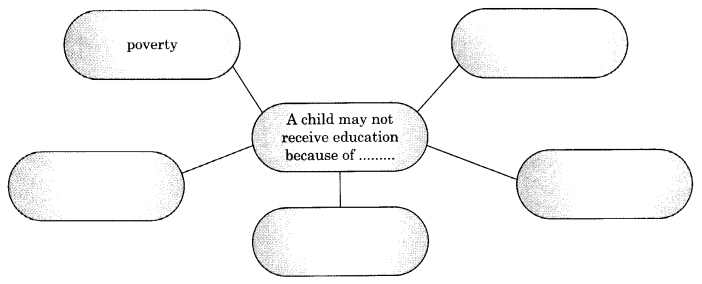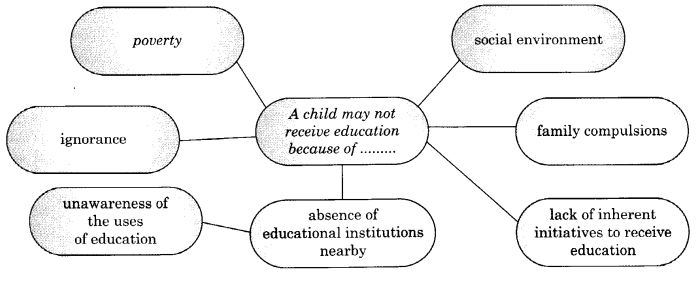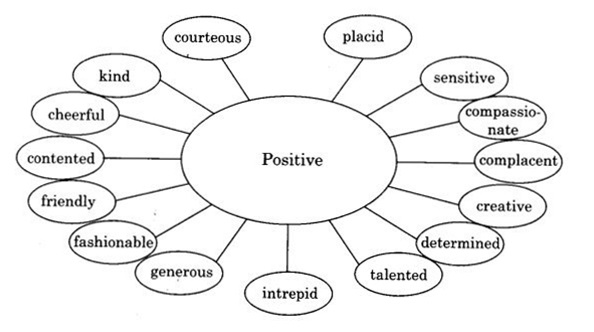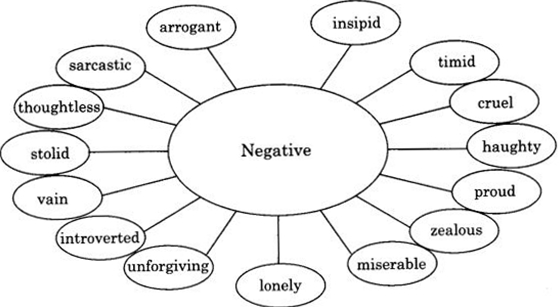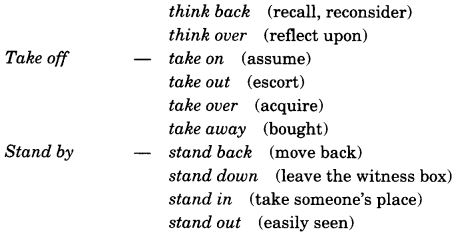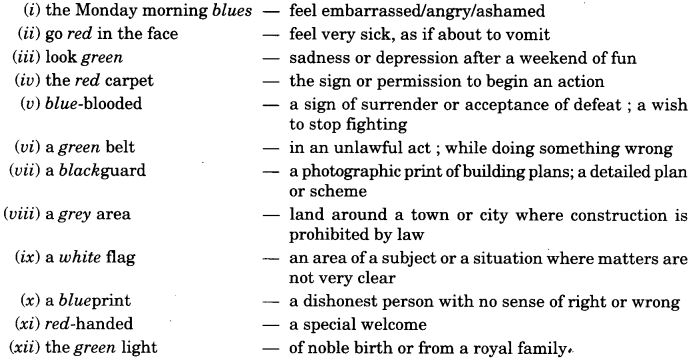NCERT Solutions for Class 10 English Main Course Book Unit 4 Chapter 3 Let’s Clean up are part of NCERT Solutions for Class 10 English. Here we have given NCERT Solutions for Class 10 English Main Course Book Unit 4 Chapter 3 Let’s Clean up.
| Board | CBSE |
| Textbook | NCERT |
| Class | Class 10 |
| Subject | English Main Course Book |
| Chapter | Unit 4 Chapter 3 |
| Chapter Name | Let’s Clean up |
| Category | NCERT Solutions |
CBSE Class 10 English Main Course Book Unit 4 Environment Chapter 3 Let’s Clean up
TEXTUAL EXERCISES
Question 1.
Read the inputs given as I and II and have a class discussion on ‘Food Wastage’.
Answer:
Mainly for discussion at class level. A sample of how the discussion is to proceed is given below.
Teacher : Students, all of you know how much food goes into waste during wedding parties. What do you say about it ?
Student A : Some guests fill their plates with various food items that they cannot eat. They realize it later and discard the food in the bins.
Student B : I know many people who say it’s a status symbol to leave food in the plate.
Student C : One thing that I find surprising is that these people are already having enough. They do not think of those who barely manage a single meal.
Student D : It has been rightly said, ‘Generosity is not in serving food ; generosity is in serving food to those who are hungry.’
Student E : There should be a law to check the rampant wastage of food in lavish wedding parties and celebrations.
Student A : Yes, in most marriages, the wastage of food is really very much. The half- eaten food items that are costly can be seen in the dustbins or on the floor.
Teacher : Food wastage is more of a habit than practice especially in children.
Student F : In ruy opinion, parents should be watchful enough to guide their children about the proper amount of food they should take. They should be taught not to waste food at all. They should take only those foods items that they can eat.
Student B : The best way to save food is to take spoonfuls of each dish to taste and decide which are to be taken more. They shouldn’t fill the plate with every food item and then discard it all in the bins.
Student G : I feel, it is the responsibility of the guests to help the size of the servings according to their appetite.
Teacher : Yes, so dear students, there are millions who go to bed without a morsel. The left over food in marriages can feed thousands of hungry people. Food inflation is going high. Everyone should try to save food at home also.
Student H : I have heard of BIOTECH of Kerala. It has succeeded in tackling the problem of waste food being dumped in the streets. This has been done by setting up biogas plants that use the food waste to produce gas for cooking.
Teacher : It is an excellent idea but we all should think of 3R’s of food —
‘Reduce wastage.’
‘Reuse wastage.’
‘Recycle waste food.’
All :We have learnt a lot that we should not waste food. We should save every grain and every morsel and try to follow good food habits. Thank you Madam.
Question 2.
Punctuate the passage given below :
what exactly is waste waste is anything discarded, rejected, or otherwise released into the environment in a manner that could have an impact on that environment how can we help we can help by practicing the three rs of waste management reduce reuse and recycle it has been estimated that every ton of recycled paper saves 17 trees 7000 gallons of water 4100 kilowatt hour of energy and three cubic yards of landfill space how does reduce and reuse help reducing consumption is decreasing waste whereas the reuse of products such as recyclable plastics prevents the need for excess production of these exact same plastics hence the emission released from factories is lessened recycled products also take less energy to produce
Answer:
What exactly is waste ? Waste is anything discarded, rejected, or otherwise released into the environment in a manner that could have an impact on that environment. How can we help ? We can help by practising the three R’s of waste management : reduce, reuse and recycle. It has been estimated that every ton of recycled paper saves 17 trees, 7000 gallons of water, 4100 kilowatt hour of energy and three cubic yards of Landfill space. How does reduce and reuse help ? Reducing consumption is decreasing waste whereas the reuse of products such as recyclable plastics prevents the need for excess production of these exact same plastics. Hence, the emission released from factories is lessened. Recycled products also take less energy to produce.
Question 3.
With the help of the inputs given below, write a letter to the Editor of a newspaper on the colossal wastage of food in the lavish Indian weddings.
Answer:
129, HBC ,
Faridabad
22 September, 20 – –
The Editor
The Daily Times
New Delhi
Sir
Subject: Wastage of food in Indian Weddings
Through this letter, I want to draw attention of all concerned to the colossal wastage of food in the lavish Indian weddings. Wedding is a special occasion for Indians. Money is spent lavishly on this occasion on clothes, decoration, banquets and above all on food by the host. The more the items are, the better the celebrations are. Host’s hospitality is judged by the food served on unlimited occasions and ceremonies such as Mehndi, D.J. Night and Wedding day. I will not be wrong if I say Indians spend life’s savings on weddings of their son or daughter.
Surprisingly, wedding market in India is approximately ₹ 1,50,000 crores per year. It has been rightly said that the guests eat less and waste more in the marriages. Ironically, India also hosts one of the biggest armies of starving people in the world. Millions of people hardly get a meal per day in India. Is it India ? If all the people of India observe a fast every week, it can feed the millions of starving people.
It is high time that we should think of it, think of the wastage of food as well as . hard-earned money. It is the responsibility of the guests to limit the size of the servings according to their appetite. Instead of filling the plate with every dish, the guests may take spoonfuls of each food item to taste first and decide how much to take. The host must avoid extravagance in the wedding and preparing the maximum number of food items. A big sum of money can be saved by avoiding show-off and by arranging simple marriage parties.
I urge you to issue a special supplement on this issue to awaken the masses. This will bring a change in their thinking and attitude towards wastage of food as well as money in marriages.
Thanking you in anticipation.
Yours faithfully
Samarth Chhabra
(A Concerned Citizen)
We hope the NCERT Solutions for Class 10 English Main Course Book Unit 4 Chapter 3 Let’s Clean up help you. If you have any query regarding NCERT Solutions for Class 10 English Main Course Book Unit 4 Chapter 3 Let’s Clean up, drop a comment below and we will get back to you at the earliest.
